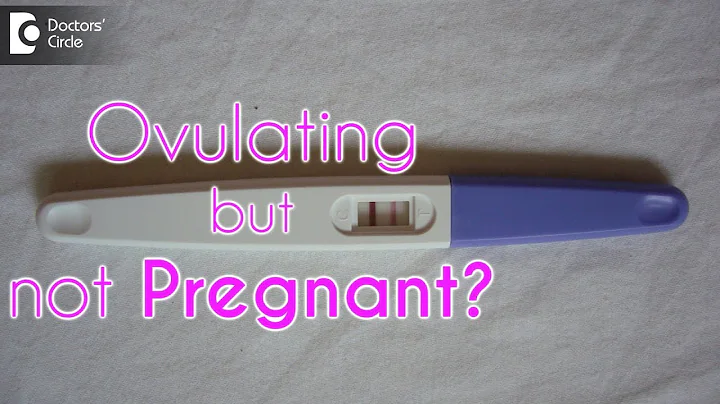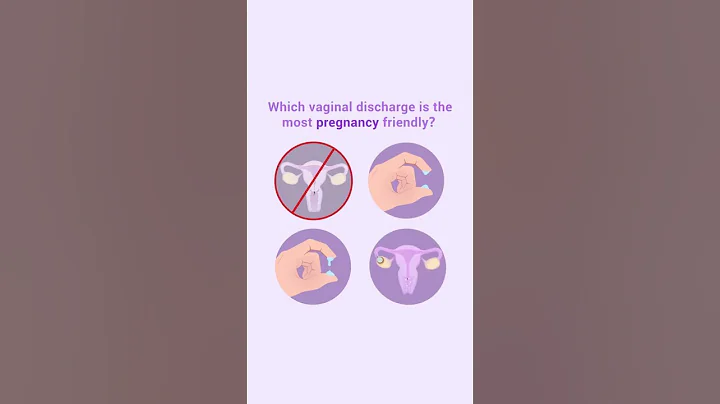I believe that many women have this problem: Although they are in good health, they have not "won the prize" for a long time. Why do some people succeed in trying to conceive in just one month?
The World Health Organization refers to infertility if there is no pregnancy after regular, non-contraceptive sex for more than 1 year [1]. If you haven't received good news after several months of trying to get pregnant, it's more likely that your body isn't ready yet.
Learn the following four tricks to teach you how to easily raise a fertile uterus and take your baby back as soon as possible!
1. Appropriate weight
Pregnancy waiting time (TTP) is one of the effective indicators for evaluating fertility, that is, the time from the couple starting regular sex without contraception to achieving pregnancy.
A recent study found that among women with no history of pregnancy, the optimal BMI (BMI=weight (kg)/height (m)²) levels for wives and husbands with the shortest TTP were 20.78~23.41 kg/m² and 22.86 respectively. ~27.54 kg/m².

Among women with a history of pregnancy, the optimal BMI levels of wives and husbands with the shortest TTP are 21.85~23.84kg/m² and 23.35~27.70 kg/m² respectively [2].

Research shows that the relationship between ovulation and weight follows a "U"-shaped curve, which means that being too low or too high will affect ovulation and thus pregnancy.
Overweight
Whether it is women who conceive naturally or women who receive assisted reproductive treatment, as their weight increases, the ovulation rate and clinical pregnancy rate will decrease [3]. This is because excessive adipose tissue in obese people will affect the body's -hypothalamus-pituitary-ovary axis , leading to hormone level disorders. It will also affect the signal conduction of the hypothalamus and -pituitary , hindering the normal follicle development process. thus affecting pregnancy [4].

Overweight people should maintain a high-protein, low-calorie diet, combined with appropriate aerobic exercise, to maintain an appropriate weight and continue throughout pregnancy.
Being underweight
Being underweight will affect the function of the hypothalamus. The pulse frequency of gonadotropin-releasing hormone will be reduced, which will affect the normal synthesis and secretion of gonadotropins by the pituitary gland. The levels of follicle-stimulating hormone and luteinizing hormone will be reduced, thereby affecting ovulation. .
When losing weight before pregnancy, you need to pay attention to the speed and method. Rapid weight loss will lead to the occurrence of hypothalamic amenorrhea [5]. Generally speaking, a weight loss of more than 10% within a year may cause amenorrhea. People with low body weight should appropriately supplement high-protein and carbohydrate foods to control their weight within an appropriate range.
2. Menstrual regularity
The menstrual cycle consists of the menstrual phase, follicular phase , ovulation phase , and luteal phase . Generally speaking, regular menstrual cycles indicate that the body can ovulate normally, but it is not completely accurate to judge ovulation function based on cycle length alone. Therefore, we also need some other auxiliary discrimination methods.
Those who have a pregnancy preparation plan
Women who are in the normal pregnancy preparation stage can judge the ovulation period by measuring their basal body temperature and using ovulation test strips . However, these methods are prone to errors when used alone, and basal body temperature measurement monitors ovulation retrospectively and cannot predict ovulation.
For young women who have lived together for a short period of time and have plans to become pregnant, you can first use this cost-effective method to determine whether you are ovulating. After mastering the ovulation pattern, you can grasp the ovulation period according to your menstrual cycle.
Those who want to get pregnant as soon as possible
suggest that women who want to get pregnant as soon as possible and have financial conditions can go to the reproductive medicine department of the hospital for follicle testing. The best prediction effect can be achieved by combining ovulation test strips with transvaginal ultrasound follicle monitoring. The combination of the two complements each other and helps to discover unruptured follicle luteinization syndrome and premature LH surge [6], both of which are important causes of ovulation failure.
Measuring progesterone in the mid-luteal phase can help us understand whether ovulation occurs in that month. Generally, if it is >3ng/ml, it is considered that there is ovulation in that month.
Anovulation
The normal menstrual cycle of women is 21-35 days. Generally speaking, irregular menstruation indicates anovulation or infrequent ovulation. Menstrual cycles of 60 days or more indicate anovulation.
For women with abnormal uterine bleeding due to anovulation, the use of ovulation induction drugs can not only restore normal menstrual cycles and normal ovulation, but also improve the phenomenon of insufficient menstrual bleeding and inability to have sex.
3. Good mentality
For women of childbearing age who have strong fertility needs, the pressure caused by infertility increases the risk of anxiety and other negative emotions [7]. At the same time, anxiety, depression and other negative emotions can also directly affect pregnancy [ 8]. In
clinical work, it is often seen that female patients who have been infertile for many years are detected to be pregnant in the month they prepare to undergo in vitro fertilization. The main reason is that after they relax, they can ovulate normally and prepare for pregnancy successfully.

Traditional Chinese medicine believes that changes in emotions can directly damage internal organs. Excessive anxiety and tension are not conducive to the health of the ovaries and conception [9]. After a long period of infertility, once you feel relieved, you can become pregnant quietly. This phenomenon is the best explanation of emotions and infertility.
4. Uterine health
From the time when the fertilized egg implants in the bed to the time before the fetus is delivered, uterine health greatly affects the baby's health. So how should we maintain uterine health?
1. Choose the appropriate childbearing age
The suitable childbearing age for women is between 25 and 29 years old [10], and should not exceed 35 years old.
As age increases, the incidence rates of miscarriage, premature birth [11], neonatal death [12] and neonatal congenital malformations [13] also increase.
2. Take contraceptive measures when there is no pregnancy plan.
Safe period is not safe! Especially for women who have irregular menstrual cycles.
Whether it is medical abortion or artificial abortion, it will cause harm to subsequent pregnancy and childbirth [14], and it will also prolong the average pregnancy time [15]. Therefore, women must pay attention to their first pregnancy.
3. Remember not to have sex during menstruation.
At this time, the cervix is open, which can easily lead to upward infection, inducing endometritis, fallopian tube oophoritis, pelvic inflammatory disease, and a series of other diseases.
If you already meet the criteria for infertility, you must go to the hospital for relevant examinations and follow the doctor's advice for treatment. Pregnancy is a matter of two people. Don’t forget that the man also needs to be checked. I wish everyone a good pregnancy!





















